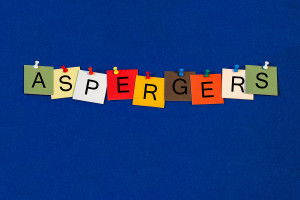
Asperger Syndrome (or Asperger’s) is a developmental disorder that is on the autism spectrum. People with Asperger’s may find it hard to display empathy towards others and understand social rules, which can lead to problems in social interactions.
Asperger’s was not recognised as an individual disorder until the early 1990’s, and is now classed as a milder form of the well known spectrum of developmental problems called Autism. Compared to more severe forms of autism, people with Asperger’s share some common symptoms which are less severe and mainly affect how someone interacts in social settings.
Some of the most common signs and symptoms of Asperger’s include:
- Obsessive interest in a particular object or topic. This often involves collecting, numbering, or listing items.
- Formal, monotone speech patterns that lack rhythm or are unusually slow or fast.
- Adherence to strict routines and rituals, and the person may become anxious and upset if disrupted.
- Difficulties in higher level communication skills, including in understanding jokes, figures of speech, and irony.
- Desire to have friends and fit in, yet difficulty creating friendships. People may who odd or inappropriate behaviour in a social situation.
- May be isolated at school or work, and can develop depression or anxiety.
- May have delayed development of motor skills, causing them to drop things, fall, and have difficulty with actions like running, catching a ball or tying shoelaces.
It is important to remember that not all people with Asperger’s share the same symptoms. Some people may show all of the above symptoms, while others will show only a few. That’s why seeking a professional diagnosis is critical to Asperger’s treatment.
Diagnosing and treating Asperger’s at an early age makes a big difference to a child’s ability to better communicate, interact, and function in social settings later in life. Treating Asperger’s generally involves physical and social therapy and training programs, and in rare cases, medication.
Our Clinical Psychologists are ready and waiting to develop an ideal treatment plan that meets your needs.
